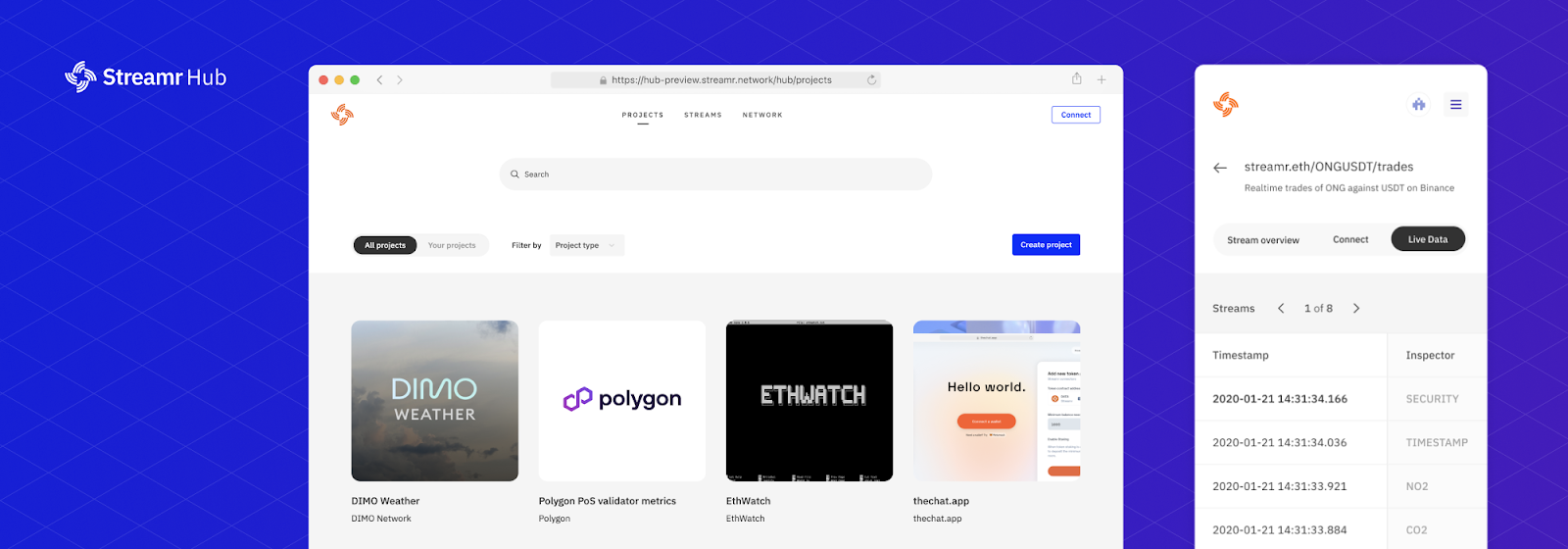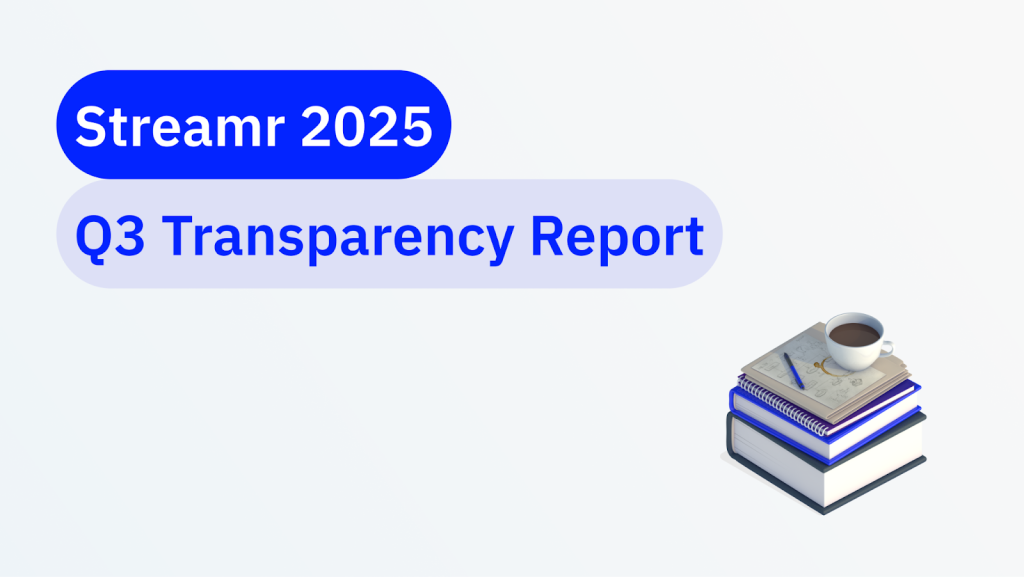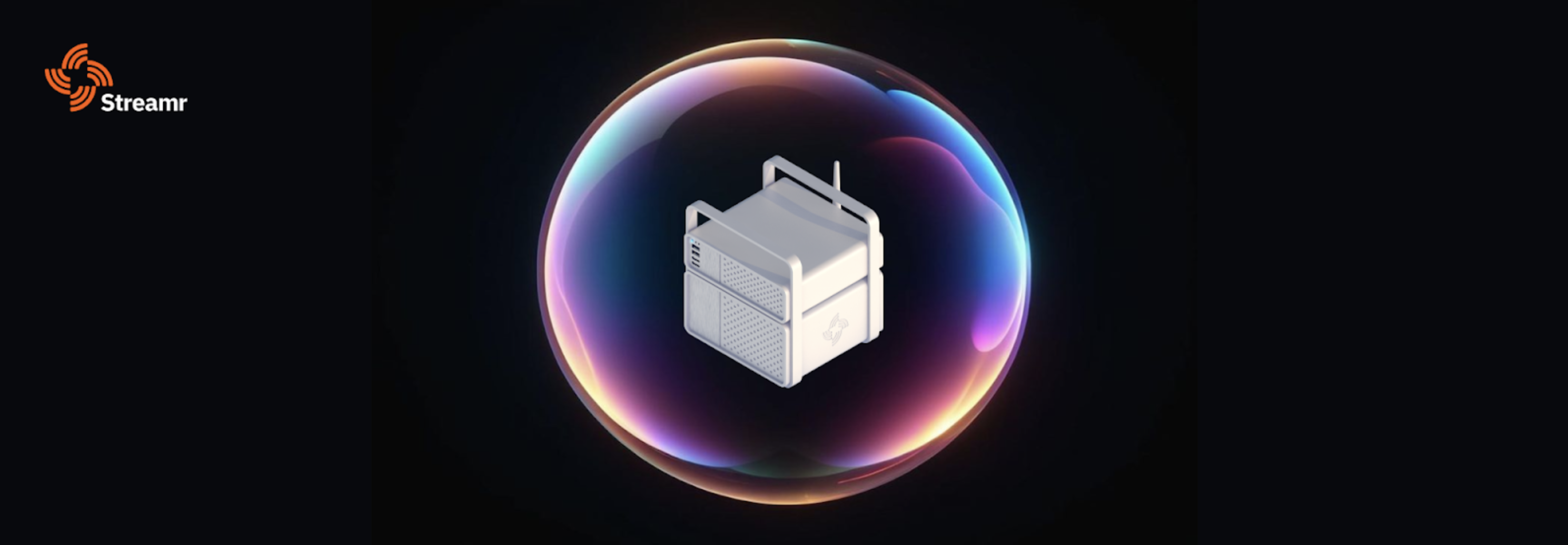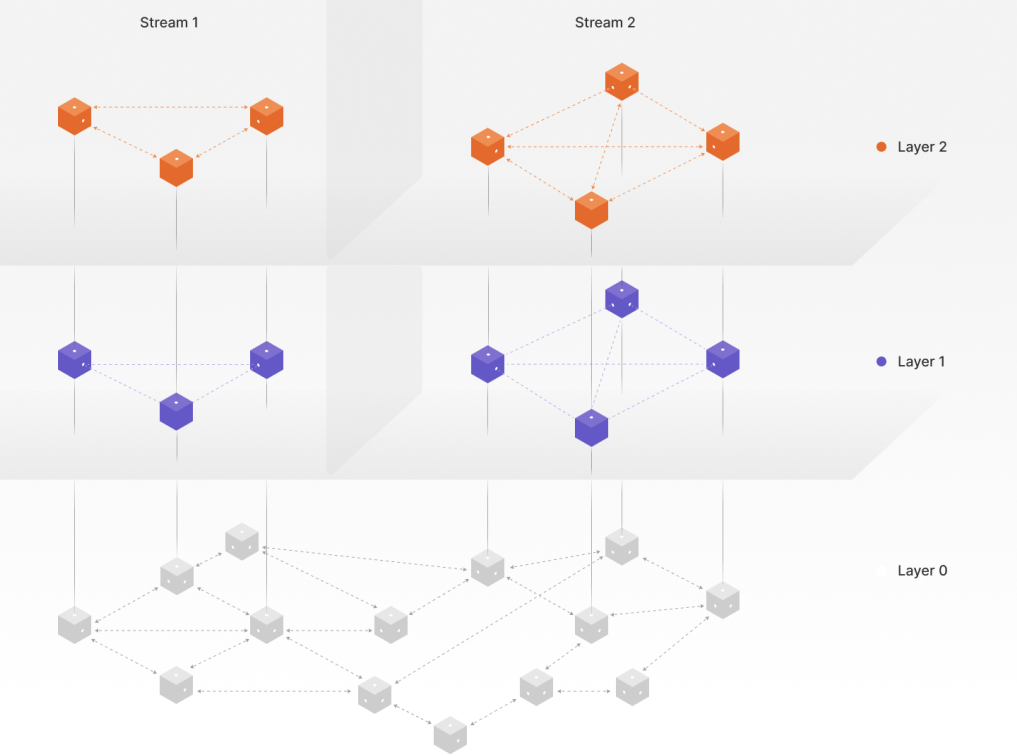The Hub is the new dApp from Streamr, taking over as the main developer interface of the Streamr Network. The Hub is designed to be as open as possible; streams are now indexed and searchable inside a new interface that’s primed for open data creation and discovery. The Hub replaces the Marketplace and Core dApps, which have been merged into The Hub.
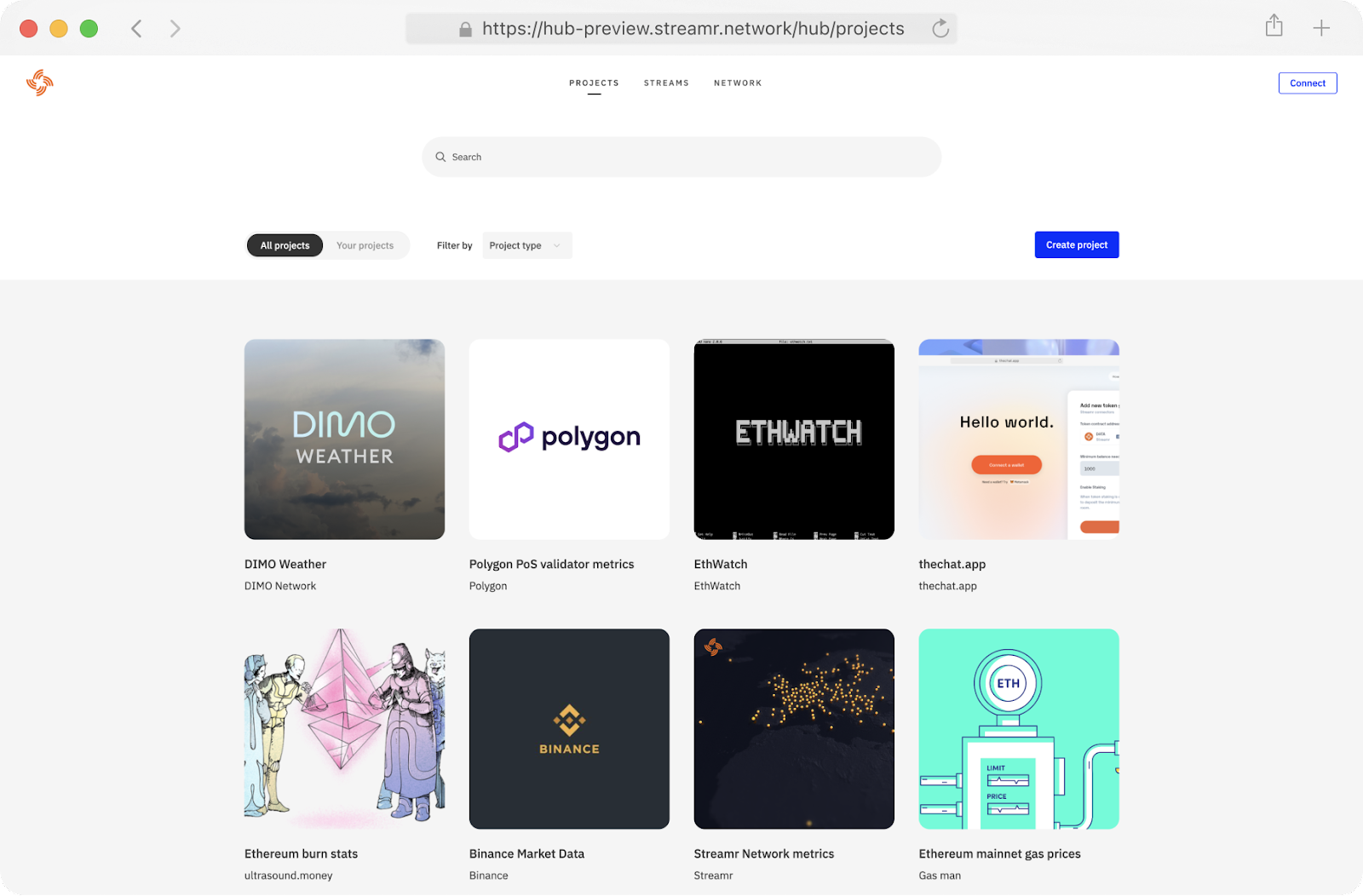
Table of Contents
Highlights
- The Hub is now live!
- The first open data projects on The Hub: DIMO Weather, EthWatch & Polygon metrics
- Search for any stream on the Streamr Network and monitor every stream’s live peers and data flow rate.
- Create open data projects and monetise live data flows. Get paid on Polygon or Gnosis chains, in any token.
- New and improved stream creation and access control management
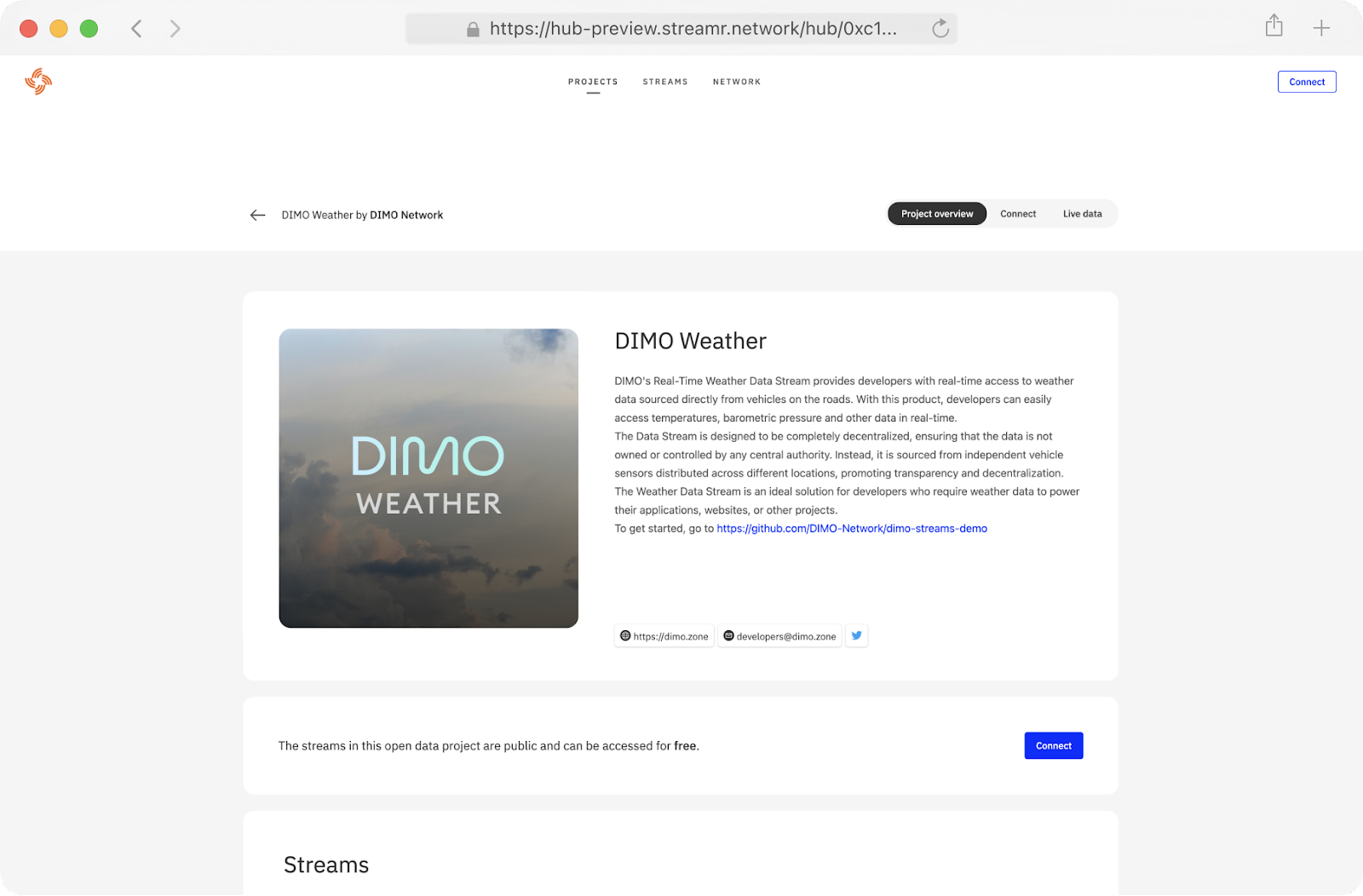
What’s The Hub and who’s building?
You can think of The Hub as a portal into the Streamr Network. It’s an entry point for developers to create and connect with live streaming data, and it’s a step towards a more consciously open data approach, consistent with the broader Web3 ethos of verifiable transparency.
Who’s building? To name a few, DIMO has created one of the first open data projects on The Hub—they’re sharing crowdsourced data from their roaming car sensor network. That’s DePIN in action! Polygon Validators are sharing their validator node’s live metrics, and EthWatch is broadcasting the live stream of Ethereum and Polygon contract events to give developers the opportunity to throw away their RPC keys!
Smart contract event watching on Ethereum & other EVM chains is kind of broken. The RPC access needed for this is a pain for devs, especially at scale. Do your RPC usage stats look like this?
I’d like to announce a fun pet project of mine, #EthWatch, which solves this 🧵! (1/9) pic.twitter.com/9XtPzkjLEu
— Henri Pihkala (@henripihkala) April 27, 2023
Why did Streamr build The Hub?
The Marketplace and Core apps, launched in 2018, were due for an overhaul. While the Marketplace was an early cornerstone of the project, Streamr has become so much more than just a data marketplace—it’s the Internet’s new data protocol that enables next generation serverless applications, like thechat.app. With this in mind, The Hub gives the Streamr Network a better chance to be defined by the imagination of the builders that choose to build on it by presenting a more open and holistic view of how the world is using Streamr.
What are Hub projects?
A project is a list of streams along with the project’s metadata, stored in the on-chain project registry and displayed on The Hub. Packaging streams into a project helps to organize discovery, management, and monetisation of the collection of streams inside.
Why does open data need Streamr?
The open data movement was born from the belief that if you make information accessible, someone will make good use of it, and people will benefit. While open data is nothing new, the ability to stream live flowing open data on a decentralized protocol is. Open data is a fantastic match for open source protocols, powered and owned by the people.
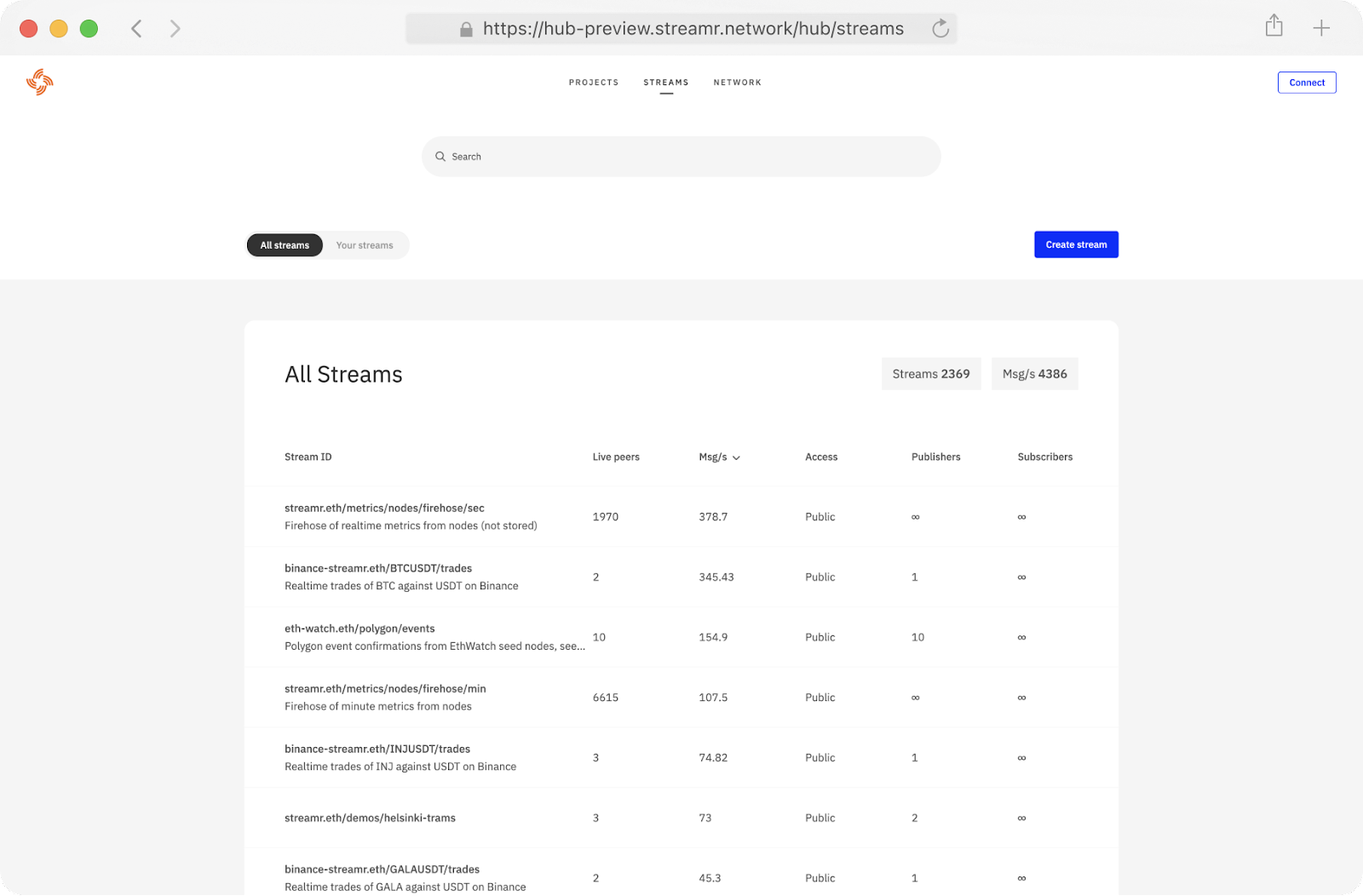
Perhaps by accident, open data has been behind the success of many Web3 projects. Unicorns like Dune Analytics and Blocknative were built on open chain data. Streamr will extend the foundations of Web3 open data one step further by onboarding the real world, i.e. DePIN (think DIMO, Helium) and chain adjacent data sources, such as the validator node metrics of decentralized work protocols.
We also see an opportunity for Web2 to upgrade their data pipelines to Streamr. Governments in particular have been going through an open data revolution, however real-time data is not well represented—there are thousands of open data portals around the world but few offer real time data. The Hub will be well positioned to complement these static open data offerings.
What comes next?
The Hub will continue to evolve to fit the needs of the Network and the developers that choose to build on it. As we approach the final milestone of the original roadmap, Streamr 1.0, expect to see new upgrades landing on The Hub that will enable operators, sponsors and delegators to interface directly with the Network and engage with the Network’s incentive currency— DATA.
We’ll also be developing a form of project staking that will serve to curate and signal projects of high value which may play a role towards signaling which streams deserve to be sponsored by the community.
Please feel free to join us on Discord and share your thoughts on The Hub, what sort of data you want to see on it, and how we can improve it!

